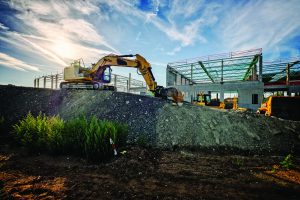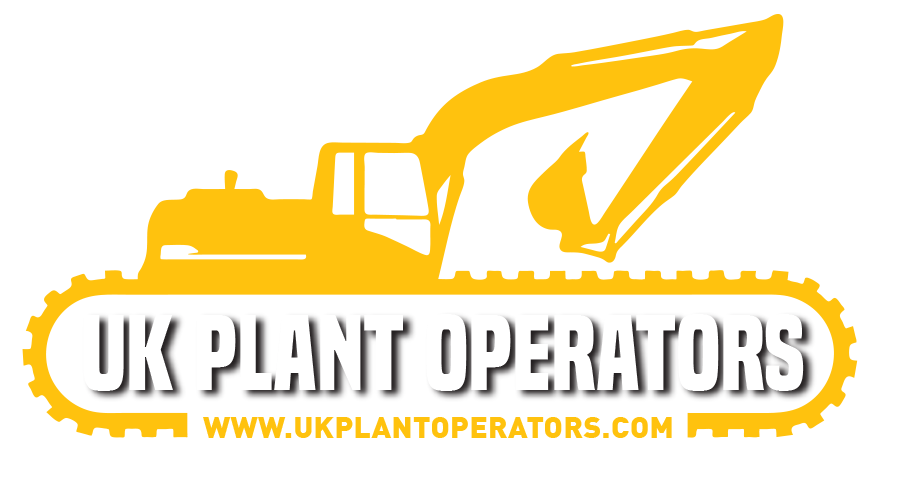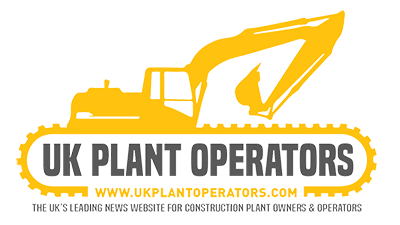![]()
Is the industry doing enough to, keep, up skill and encourage new talent into the various construction sectors?
Having been in operated plant hire for over 25 years in some way or another I have seen many changes, most with good intentions, many of which have been good for the industry, but it has still not done enough to break down the barriers of encouraging new operators into the Industry.

The industry, led by the major contractors, has worked hard and has been insistent about safer plant operators and regulations to ensure safer working conditions for all work site personnel. They have, with the help of associated trades such as CPCS and CSCS, pushed through regulations in order to ensure better trained operators. I feel this has helped the industry achieve higher standards, but for all its good intentions and hard work there still isn’t any clear path for who pays for this, and still it seems the potential operator or existing one is the one footing the bill if they want future career development or unless they wish to find an apprenticeship opportunity.

And despite all the good intentions throughout the industry, it’s not difficult to understand why there are not enough operators entering the system. It would appear they are not being given the chance to gain the experience they require by the plant hire companies or contractors.
We have seen operator wages rise 28% since 2010 and I anticipate this to be 35% by 2018, and eventually 41% by 2020, which is more than alarming because the last time we spoke about rising operator rates in 2010, the industry had seen a 24% rise in the 10 years previous. The increase in foreign workers over the past 15 years has been needed but hasn’t been enough to slow the increased wage rises which clearly shows the UK is not producing enough of its own talent.
Many have suggested that Self-employment could be the main reason for operators leaving or not entering the sector, but this is more to do with the way the funding is shared rather than the way the person is paid. NFPEO and other industry surveys have shown that the operative, by majority, don’t necessary want to be directly employed but just want a consistency of work and I feel the industry needs the flexibility of self-employment as works are often inconsistent and not always regionalized. The answer here is the way the funding for career development training is paid for. If the operative was rewarded or could earn credits by either hours worked, safety awards or bonuses by the contractor, which could then be used for career development courses this would encourage the operator not only to just move for money but remain in an industry which values them and wants them to up-skill.
We need operatives with flexibility and who could be multi skilled, therefore making the operative more valuable and someone who becomes a real asset and a valued member of the team rather than the usual “I need a 360 operator for two weeks”, “oh now I need a tracked dumber driver for a couple and a duck driver for a week”, all which could be done by the same person but is often 3 different operatives. Many operatives have multi category cards but don’t use them, mainly because we try to pay different rates for different categories, the problem being that then operators have let certain categories lapse and now we have a shortage of these which just pushes the prices up. This summer we were paying more money for tracked dumper and skidstear operators than we were for Dozer.
“Construction still ranks poorly when it comes to young people deciding their future”
Encouraging new blood into the industry is a passion of mine, along with keeping the existing workforce from leaving, because of this I am constantly trying to come up with new ideas to achieve this. On Track in partnership with UK Plant Operators is one of those ideas which tackles the need for Construction Equipment Operatives. The program gets all age groups to see and try the new technologies within the industry and brings the message and opportunities from all contractors and services providers who take part. The second part of the program helps to provide upskilling for the operatives and offers training in areas which are more difficult or are in short supply, such as machine control. This particular course has already been a great success at Hinkley Point, giving all operators and associated supervisory roles a real understanding of how machine control works and the benefits to site.

This is why I am not convinced that the changes at CITB are in best interests of the industry, I understand that there is a need for change, but surly the CITB need to be more involved and step up not out of the training arena, will the private sector invest or be able to deliver some of the not so ‘profitable’ training course which CITB often take on for the good of the industry. Yes, CITB need to be accountable for the way they handle levy payments to get best value, but doesn’t the industry really need a measure that says, we need a number of operatives with a certain specialty and lets just deliver them so the industry can continue to be cost efficient and deliver world class projects.
Whilst collecting data for the On Track Programme a survey of over 9000 children was reviewed, one of the questions asked what information they looked at when considering their future careers, the surprising trend was not what sector they wanted to work in, which surprised me because most of my generation wanted to be a doctor, train driver or construction worker etc. We knew the sector and then we found the company who would give us a chance. Instead, the current generation want to work for a particular company and then decide what they want to do for that company. This shows that the medium of communication from social media is winning the battle to sell the dream about the product and company rather than the sector or industry. This wasn’t the case for everyone but the trend seems to be heading that way.
The questions where directed to what companies stood out and who they wanted to work for. Unsurprisingly, if we believe the trend toward company rather than sector, the top ranked businesses to work for were, Apple, Google, Microsoft and Facebook. Construction ranked in at a lowly 97th out of the top 100 companies to work for with Balfour Beatty at 97 and Laing O’Rourke at 99. Some would say well at least construction ranked at all, but when you realise that McDonald’s were ranked at 36th out of the top 100 it shows the industry needs to do a lot more to encourage the future generations into the industry.
“Will we be able to close the skills gap over the coming years?”
If figures are to be believed HS2 alone will require over 700 articulated dump trucks during the building phase. They are expected to be bought over a three to four-year phase starting in 2019. It will also go hand in hand with other core equipment for the project with several thousand machines being utilized. This is a great opportunity for plant hire companies and contractors but what has been put aside from the profit to leave a legacy which sees the future problem of resourcing operators being eradicated. The level of investment needed in to training must cover the ability to train properly not just award a ticket. The constant issue is the operator being awarded a ticket but having no real experience, apart from time spent achieving it. This just see’s the industry making the same mistakes, where new operators are not given the time to gain the experience due to pressures of programs, so the circle continues with experienced operators becoming a commodity and prices rising at an unsustainable rate.

For HS2 we need to be training now, but not by throwing the newbie to the wolves as soon as they get their Red Ticket, but keep them putting hours in on the training ground, which should be a piece of land on the major project which moves as the project develops – working with experienced mentors on the actual type of work they will be doing on site. New operators need time on machines and without it they will struggle to support the project. It is hoped that this project will put in a provision on site where the operator can get hours on the machine on site with experienced operatives but in an area which won’t affect the dreaded program – then this really will leave a legacy of value.
This is vital as there is a worrying trend with the amount of plant apprentices actually making it to blue card, and even more worrying the amount making it to red. As with any job you are always good at what you are used to doing, but when you are asked to do something new there is a learning curve, but the industry doesn’t want to except this and therefore the new operator is often sent away, leaving them disillusioned and then often leaves the industry as a result. I don’t know many industries which expect new trainees to be experienced at such a high level, imagine if the health services did this. With this said it wouldn’t let GP’s do heart surgery. We want a master of all disciplines but won’t let them practice.
I am a great believer in CPCS and other associated training accreditations, but it currently falls short of what the client expects in the way of expertise. Having been in the industry so long I have had many opportunities to talk and understand what it is like for a new operator to succeed, the worrying trend is the same experiences with almost all of them – one operator told me “We go on site saying we have far more experience than we have, knowing we will probably be sent home for not being up to scratch, and just hope one of the site managers or foreman will give us an opportunity if the program is not tight, it is worse if we have to use an attachment, you hope that the foreman goes away to give you the time to familiarize yourself with the machine and attachment which you have not been trained on enough or at all.”
Having been on the plant end of the industry I understand the problems with them taking on apprentices as operators, they can go through the training, but when it comes to putting them on hire, no-one wants them, not enough experience etc. One idea would be to have group training supplied by a group of companies whereby everyone helps mentor and is responsible for the apprentice and he/she works for several contractors, this would help the plant hire companies and the apprentice would become part of the family becoming more experienced, able to fulfill a two year programme and therefore given a more rounded expectance and likely to come out the other side as a good construction equipment operative.
There is no loyalty in the industry, so I go to the highest bidder
Reading through some of the online groups of construction equipment operators there is definitely a dark mood and one which would do more to discourage new people into the industry. Such comments as inconsistent work, face has to fit and you have to pay to get paid are the main ones, along with having to pay to renew tickets and that career development is solely down to the operative.

We take an operator on because they have the correct accreditation, this doesn’t mean they can do the work you want them to do, it means they can drive the equipment. Where CPCS and similar schemes fall short is beyond the blue CPS card, the specialism of deep drainage or the speed and accuracy need to load lorries on a muck shift, or to even use a certain attachment in a correct and safe manner. So the answer here has to be easier access to funding for the self-employed operative.
There are a lot more questions than answers currently, but if we want self-employment within the industry because it keeps the cost down, then let the self-employed have access to the funding easily with a simple scheme which allows the operative to get back what they have put in.
Will the new levy work for the upskilling of the current operator pool? If 90% of operatives are self-employed how will they benefit from any future training? When they do save up will they spend this money in an industry who doesn’t care or will they spend it to re-train in other sectors or industries. If Highways want the best operators, what are they doing to keep them from going to rail or nuclear or utilities? and vice versa.
One conversation I had recently with an operator summed up the feeling and where we go wrong, he said “there is no real reason to stay loyal to any organisation, the industry made us self-employed to suit itself, they didn’t want to invest in us long term, we are used to being self-employed now so will go to the highest bidder for the longest run of work. Unless you are lucky you spend most of your time worrying about next week.” “There are long term contracts but they are not always easy to get on and if your face doesn’t fit you are off.”
My grandad used to say “If you give a dog a bone he will stay loyal to you, if you give him a whack he will bite you back.” This also goes for all people in all walks of life, treat people fairly and the majority will give back more than they receive. Why do operators leave to chase that extra pound or halfway through the job, because we show them no loyalty – this of course doesn’t go for everyone but it is the case for the majority of companies and how they just on and off hire operators, how managers on site just get rid of good operators because their face doesn’t fit. I have had operators win awards on site with 20 years’ experience, working on the same site for two years, being told they are not quick enough on the next job they go to, normally by people who have never operated a machine in their lives.
What we don’t want to happen is what has happened in other areas of construction related industries where governments have come up with fast track bricklaying or plumbing courses leaving less than 1% of these still in the trade.
What we do need is sustainable working conditions for operators with consistent rates of pay where the industry doesn’t just talk the talk to get new blood into the industry but mentors and nurtures it through so it won’t leave for other industries and it doesn’t expect trained peole to take all the risk and all the responsibility when things go wrong, it allows the operator time to grease and check the equipment in the working day and invests in training to keep these valued members of the industry, rather than plough millions of pounds on job creation schemes just to appease the agreements with planning and local jobs statistics. Best practice will only become ‘best’ if it takes notice of the feedback given by the shop floor; the operators are the glue which holds the Contractors, Manufacturers, Plant hire Companies, Labour Agencies and the training providers/organisations together.
Don’t get me wrong I am not criticising anyone’s efforts, the industry as a whole has tried hard to resolve the issues, but the issues are not in the efforts for training or trying to attract, it is the way the industry has set itself up, and it will take some real innovation to change the thought process. Just as attitudes had to change with Health and Safety and the old-school mentality it must do the same for its attitude to giving people a chance to learn. This is no laughing matter as the serious undertone of this observation is that, unless the manufacturers are bringing out an automated set of plant in the next ten years, the shortage of operators will be so bad, construction will be greatly affected to the point of stopping on some jobs altogether. So we must change and change quickly, get in place data which shows how many operators are actually operating still, make it harder to just get rid of an operator without really valid reason otherwise, turn the lights out on your way out……….


























absolute perfect comment